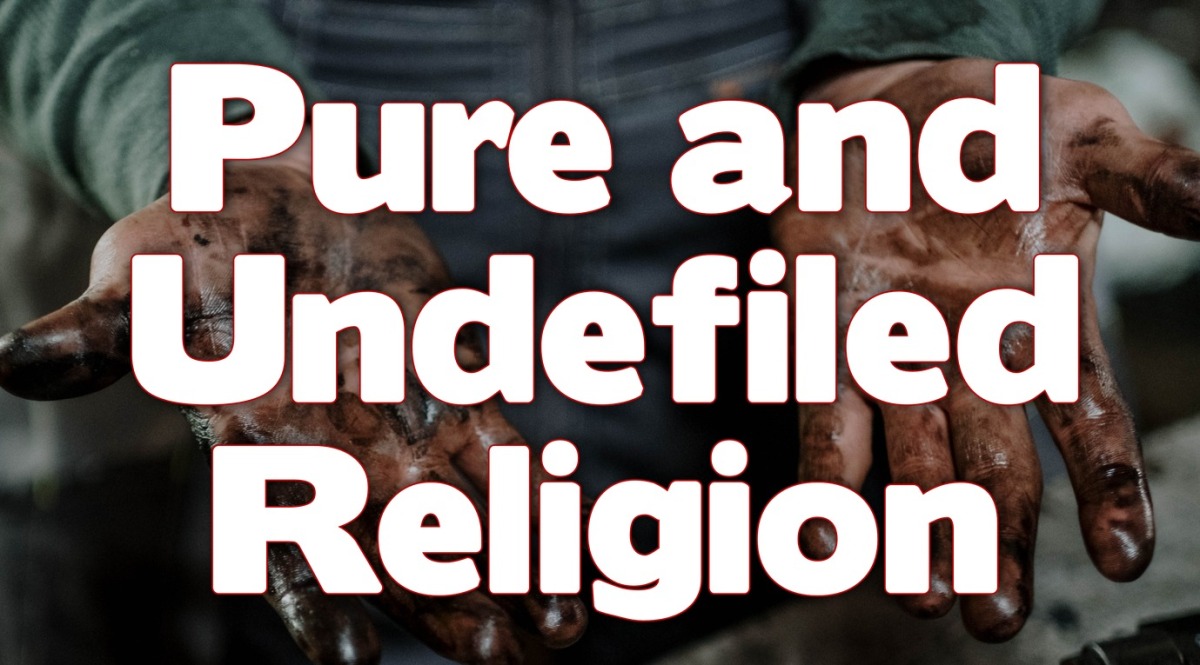Today’s reading is James 1.
James has already told us we must be quick to hear and slow to speak. In context, we know he isn’t simply talking about interpersonal relationships. He is talking about how we relate to God’s Word. Therefore, it doesn’t surprise us to find out if we don’t bridle our tongues, whatever religion we have is useless. If we speak more than we listen, our worship, our piety, our religion, and our religious actions aren’t doing either us or God any good.
However, James goes farther. We are not only to be hearers of the Word but doers. He defines some of the doing. Pure religion, undefiled religion is not walking through religious rituals mouthing the proper words, dressed in the right clothes, wearing the appropriate facial expressions. Pure and undefiled religion before God has two components. One, caring for others in their afflictions. Two, remaining unstained from the world.
Is this anything less than, more than, or different than the two greatest commands? We are to love God with all our heart, soul, mind, and might (remain unstained from the world) and we are to love our neighbors as ourselves (care for others in their afflictions). Don’t read these instructions in a vacuum. These statements James is writing to Jewish Christians are anchored in what they should have learned from the Law and the Prophets. In the Law, the Jews were to care for the widows and orphans among them as well as the poor and needy. Recall Isaiah 58. There, the Israelites couldn’t understand why God didn’t notice their fasting, their religious observance. God’s response was their fasting was nothing more than ritual. The purpose of fasting was not to wear sackcloth or bow the head. The purpose was to grow compassion for those in need among them. James will come back to this as he discusses faith in chapter 2. If we are the kind of people who tell our brothers and sisters in need to go be warmed and filled (even if we do this in prayer) instead of the kind of people who give them what they need, our faith is useless. So is our religion.
Further, we are to be unstained by the world. We must not let the world, its temptations, its ways distract us from God. We must not be defiled by bringing their gods, their ways of worship, their values, their perspectives into our hearts and minds. We must love God and not be friends with the world. James will come back to this in chapter 4 as he points out friendship with the world is enmity with God.
Yes, of course, we are to gather as churches and worship God. Yes, we are to go into our prayer closets and worship God. But if the rest of our day and week is spent pursuing our own pleasures instead of loving God and our neighbor, let us not think our times of worship are doing us a bit of good. May our times of devotion and worship be the beginning of a life in devotion to God and His people.
Next week’s reading is James 2.
PODCAST!!!
Discuss the Following Questions with Your Family
- What are your initial reactions to the chapter and the written devo above?
- In what ways must we bridle our tongues for our religion to be worthwhile?
- How can we visit orphans, widows, and others in affliction in order to have pure and undefiled religion?
- How do we remain unstained by the world in order to have pure and undefiled religion?
- What do you think we should pray for and about in light of this chapter and today’s post?


